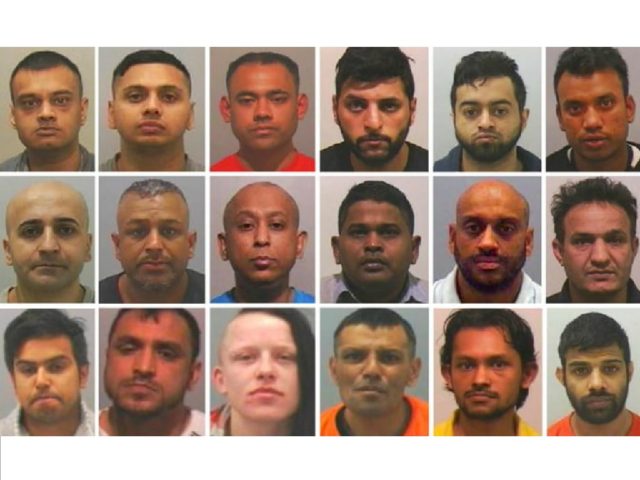A report by counter-extremism think tank Quilliam has found that more than eight out of ten men convicted of grooming gang offences have an ‘Asian’ background.
When the study’s authors — both of whom are of Pakistani heritage — set out on their research into grooming gangs, they expected to “debunk” the perception that Muslims of Asian heritage are overrepresented.
But instead their analysis revealed that 222 of 264 convictions related to 58 cases of grooming gangs identified in Britain between 2005 and 2017 — or 84 per cent — involved perpetrators of Asian origin, despite Asians making up just 7 per cent of the population.
The report found just 18 of the 264 offenders (7 per cent) were white, while 22 were black (8 per cent), and the ethnicities of a further two men were unknown.
What the report means by ‘Asian’ will not be clear until the report is officially published over the coming days, but Quilliam founder, LBC presenter and former Islamic extremist Maajid Nawaz gave some indication when he tweeted that “84% of collective child-grooming and rape cases in the UK involve gangs of British South-Asian Muslim men” in connection with it.
Author Muna Adil said: “We began thinking we would debunk the media narrative that Asians are overrepresented in this specific crime.
“But, when the final numbers came in we were alarmed and dismayed. For both of us being of Pakistani heritage, this issue is deeply personal and deeply disturbing.”
“In attempts to protect the ‘’sentiments’’ of the British Pakistani community, we have failed vulnerable young girls who have suffered years of irreversible damage,” Adil and co-author of the report Haras Rafiq said in a statement, noting that “the victims that have come forward so far are almost exclusively white girls”.
According to the study, which is based on the testimonies of grooming gang offenders during court hearings, Asian men deliberately preyed on white girls — who they deemed “easy targets” and “open to sex”.
“Girls from the Asian community are seen as commodities to be ‘protected’, whereas girls from outside of the community are seen as fair game,” says the report.
Adil added: “There are elements from within the British Pakistani community that still subscribe to outdated and sexist views of women embedded within their jaded interpretations of Islam. These backward views are passed down from generation to generation until the lines between faith and culture dissolve, making it increasingly difficult to criticise one without being seen as a critic of the other.”
Speaking to Sky News from his home in Rochdale — a town affected by grooming, and where whistleblowers have warned gang members are still at large — Rafiq said it’s vital that the topic continues to be discussed, “because the problem won’t go away.”
“We didn’t want there to be a pattern of people from our ethnic demographic carrying out these attacks. But unfortunately we were proven wrong,” he added.
Last month, Pakistani Muslims living in Birmingham told reporters that their community has nothing to do with the epidemic of grooming gangs in the UK.
“The crimes are committed in this country; these grooming crimes are not committed in Pakistan. They are committed in this society, and it is the conditions of this society that are encouraging people to commit crimes like that,” one man told ITV News.
